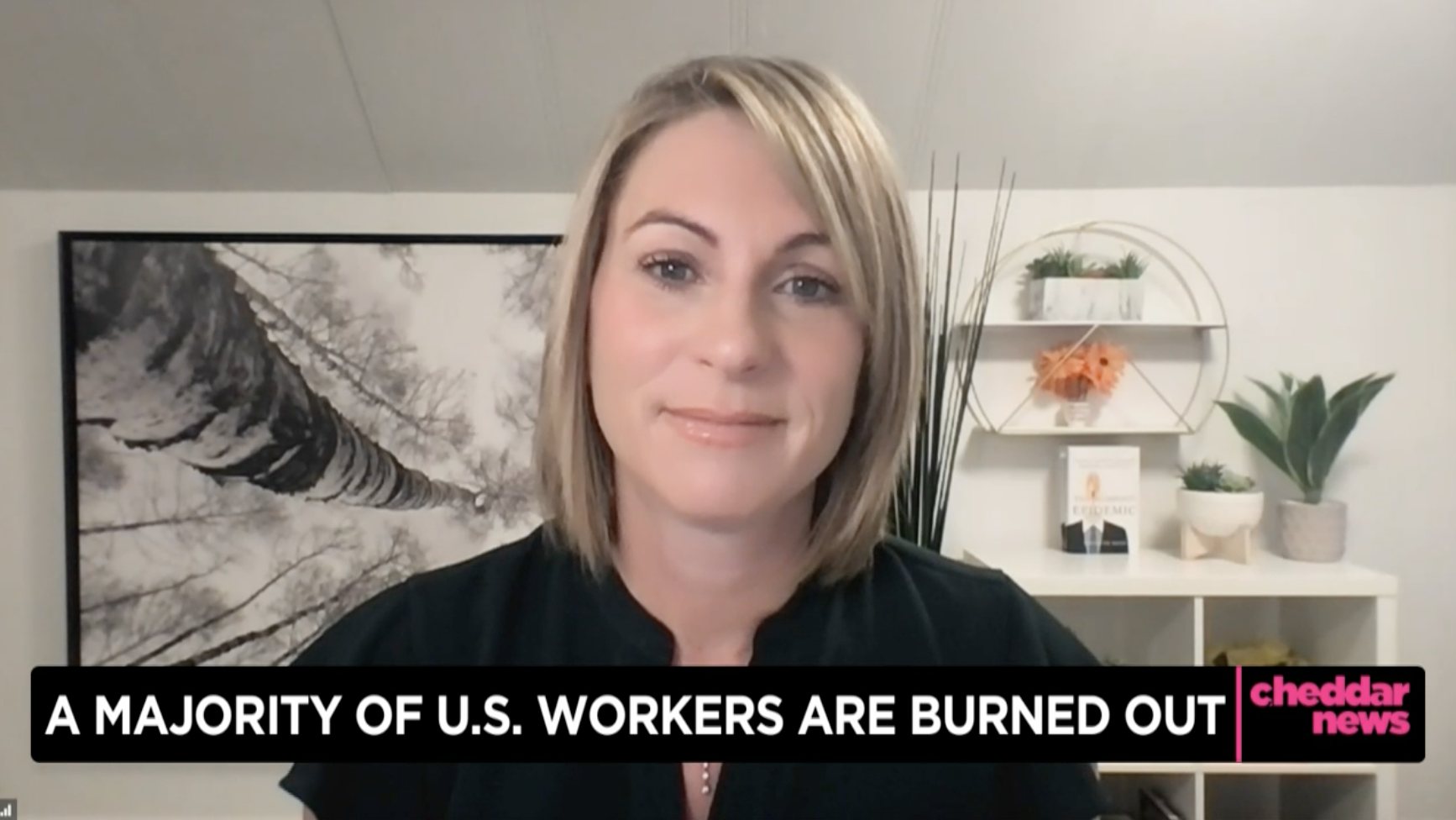What's Fueling the 'Burnout Epidemic' Among U.S. Workers
Transcript of Video: You know, a majority of American workers say that they are burned out. Jennifer Moss an expert and author of The Burnout Epidemic, joins us live to talk a little bit more about why this is happening. So thank you so much for being here with us.
Q: Can start off by telling us, I mean you literally wrote a book on burnout. So why is this so pervasive right now?
Jennifer: Well I was writing about burnout and talking about it and I actually started writing the book before the pandemic kind of saying this is a real problem, people are feeling exhausted and depleted and then the pandemic hit and everything just exploded. We had all of these issues that were not really being taken care of just brought to the surface and so now I think after two or three years of this surge capacity and stress everyone is just ready to quit or resign or take a break.
Q: Yeah, so break it down a little bit more for us. How are organizations burning out their workers? I'm asking for a friend.
Jennifer: We see this as across the board. I mean when you look at the number of resignations, it was 41% of the global workforce resigned in the same numbers are still ringing true today and what employees are saying is that they're lacking empathy and compassion from their boss and workload, and that there's six root causes of burnout but workload is sort of the leading cause of burnout and when you look at all the inefficiencies that happened in the pandemic. When you look at people just, you know, working at the same business as usual, even during this major crisis, what happened is now, employers are still asking for a lot, demanding a lot of productivity and employees just can't meet that. And so they're, they're hitting this wall all right. You know, when my parents were growing up, they said you didn't complain about work, you just did your job.
Q: So do you find that it's more common for millennials or Gen Z to burnout? Or is it just that more common for one of them to talk about it more?
Jennifer: I'm, you know, that group is particularly burned out. Yes. You see that, you know, and it frustrates me when people say, oh, these whiny millennials, they just, you know, just want more work life balance, They want it all. And actually, when you really look at that group, they've just graduated in many cases or they're paying off student debt, they go into a role where they're working extreme hours. They've actually in the pandemic. We've seen them working these extreme hours and going above and beyond. And nothing is actually resulting in any sort of promotions that we've lost about 50% of learning and development across the board and organizations, they're feeling like what's the point of having all this education, all of this effort, putting in all of my time and having no balance and yet no career progression. So no wonder they're burning out. Don't forget all those student loans that they're also stressed about paying.
Q: So, okay, last year it was all about quiet quitting. And now the latest trend is rage applying. What is that?
Jennifer: So it's been really great that Tik Tok is here to kind of put a label and create a trend around things that have already been in play for a long time. But we have seen this explosion again of this, these trends like quite quitting. Great resignation. And this rage applying is essentially when people go, you know, in their work day and they just go and apply to any job. It's just sort of spraying resumes out there. They're not necessarily really focusing on, you know, one particular job or putting in that cover letter, it's just about any job anywhere to get out of their current situation. And you know, you see some people that have been able to attract work, but you know, there's downsides to just kind of putting your resume out everywhere across the board.
Q: Alright, so do you think that these social media strategies are really benefiting workers in the long run?
I think it's a symbol of what is the root problem, and employers not recognizing that it isn't business as usual. Our, you know, our brains, our capacity cannot work at this level, for for this long because we are dealing with the symptoms of stress. It means brain fog, or a lack of efficiency, lack of efficacy. And then we're trying to still meet those demands or even bigger demands. So employers have to recognize that, you know, these are signs when you see mass attrition events, when you see people disengaged at work at this level. And when you see people on the job applying for other jobs, there's something that they need to be doing instead of pushing it back on the employee.
